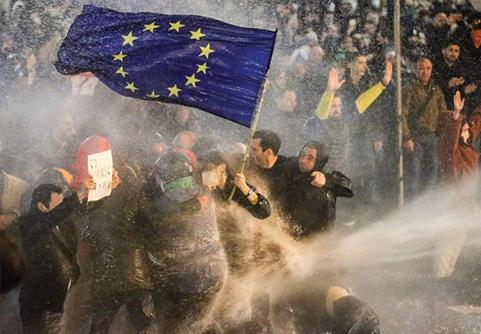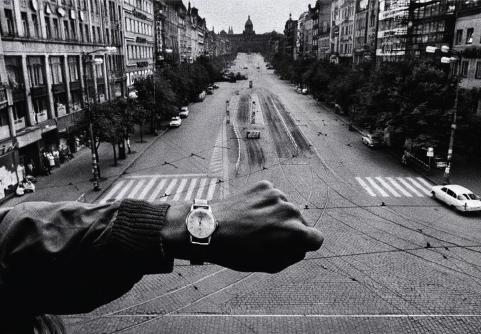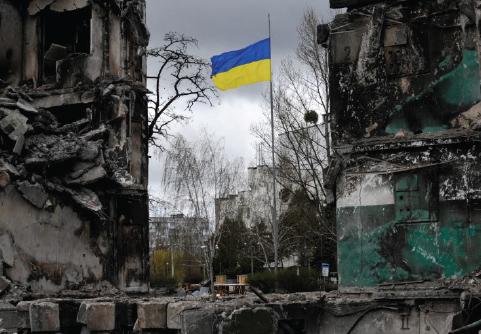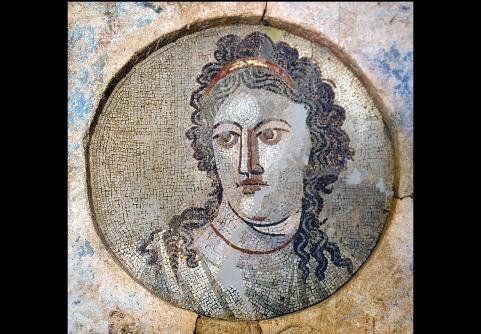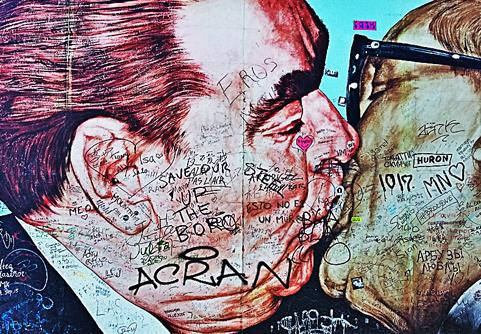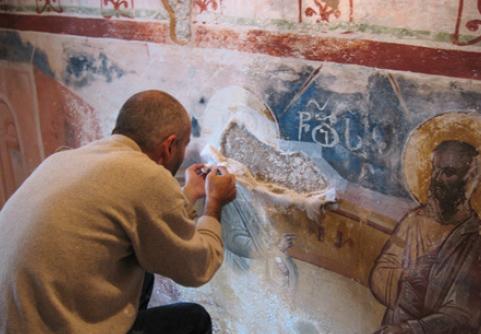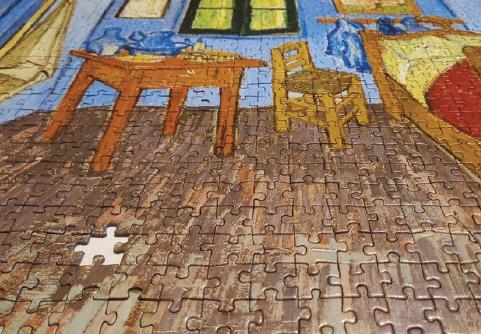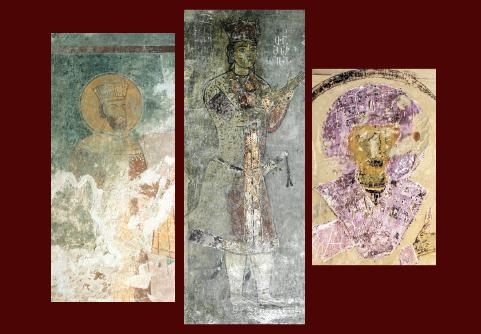
Author : Buba Kudava

How many unsolved cases has our time shelved? How many questions – with or without answers – how much anger or doubt surrounds us about those who were murdered before our eyes or died of natural causes, great or ordinary people, righteous or sinners, and then let us reflect on how scarce and inconspicuous our knowledge and perceptions are about the conspiracies of the deep past, betrayals, treacheries, hidden poisonous intrigues in the corridors of the chambers, stranglings, stabbings, and then the sincere silencing of this sinfulness. Especially when these stories happened to the chosen people of history, of an epoch, a region, or a country!
Starting with Cain, murder has always been rife in ancient times, so why on earth would all of our kings be given the opportunity to die a peaceful and natural death? And why would court chroniclers open their hearts to us here?
Very often we follow the Georgian Chronicles – look, it is written this way or that way, or not written at all, and we only know what the ancient historians wanted us to know, and we do not know what, in their own opinion, we do not need to know.
Surprisingly, we are not in the habit of asking questions, we are used to rejecting data from parallel foreign sources, we are used to believing the royal versions, and we regard reconstructions of alternative histories as blasphemy.
In what follows, we will examine the deaths of several Georgian kings, consider the accounts of Georgian and foreign historians, and ask the reader, “Excuse me, is there something going on here?”
David Kurapalat
Who has not heard of Davit Kurapalat, the master of the lands of South Georgia and beyond, King of Tao, father of Bagrat III, the first king of united Georgia, the undisputed leader of the region (exaggerated or not), considered the inspirer of the unification of Georgia. We have also read poetic and historical stories about his involvement in two Byzantine wars. We have also heard that he turned out to be on the side that lost and had to sign an undesirable will. What happens after his death due to that fateful will and the might of the Empire – will the Empire receive only the lands that David conquered with the sword in the fight against the Muslim rulers, or his entire estate, with all his possessions, the Georgian-Armenian marches, we have not stopped the scholarly dispute on this.
However...
For some reason we talk less about his death. Sometimes we are unaware that other information can be found, sometimes we ignore it. David, the great Kurapalat, the son of Adarnase Kurapalates, died in 1001 – that is all our sources say.
But the Armenian chronicles of that time and later are almost unanimous in saying that David was not executed. The accounts vary, but based on their comparison, the gist of the story is this: They were betrayed by their own nobles, who mixed poison with a divine liquid and gave them Communion on Maundy Thursday (i.e. before Easter). King Kurapalat survived, and then on Easter Day Bishop Hilarion of Georgia smothered him with a pillow in his bedroom (at that time, according to Georgian sources, Bishop Ishkhneli was known by this name).
Is all the evidence from Armenian sources based only on rumours, disinformation, and a desire to defame Georgian secular and clerical circles? It should be noted that these several parallel reports probably come from different primary sources. They, therefore, carry more weight than our dry chronicle, the brevity of which in itself is questionable – all the more so in the context of such an abundance of information from the Armenian sources.
If we remember that during the last conspiracy, David supported the camp of the Byzantine Emperor’s rival, who suffered defeat; if we consider that the Georgian Kurapalat was forced to bequeath his inheritance (a large share or all of it) to the Empire – with the right to take it after his death; if we realise that immediately after his execution the Emperor Basil II appeared in Tao and immediately demanded to receive the debt, then the above reports will seem plausible and the arrows of reasonable doubt will be directed towards the Byzantine Empire. If anyone was interested in getting rid of David so that the will could be executed in time and nothing would change or complicate matters, it was the Imperial court of Constantinople.
As logical as this version may seem, the silence of the Georgian sources is equally incomprehensible and suspicious. If he was not killed, why does no author (historian or hagiographer) add any further details? And if King Kurapalat died of natural causes, why do Georgian sources avoid the subject? If he was killed by Byzantium, is it necessary to hide it? Perhaps the fact that the Empire is acting through the hands of nobles is the key to this silence? If this is a special operation of Byzantium, then I ask a question: What is the role of the great son of the great father, King Bagrat III of Abkhazia and his father, King Gurgen? Complicity? Passive cooperation? Benefits in exchange for silence? Did the emperor give the father and son anything from the inheritance of David Kurapalat (with the right to rule for life)? They received the titles of Kurapalates and Magisteros and settled their relationship with their great uncle. Who knows what happened and how things really were. The more silent the sources, the more room they leave for judgements, versions, and interpretations. But did David die or was he killed? And if he was killed, why do only Armenian sources speak of it and why are the Georgian sources silent?
Giorgi I
Who doesn’t know King Giorgi! Who doesn’t know the king who was “crushed between the two Kurapalates”, the son of Bagrat and the father of Bagrat? We remember him from school. We got acquainted with him in The Hand of the Great Master. For the first time, Konstantine Gamsakhurdia will make young people think about this young and boisterous king. Much of what follows us for life from this novel is, of course, the writer’s imagination, but even if he has created a portrait of Giorgi I only from passages of known sources, it will not leave you indifferent.
In any case, what was he like – reckless, impatient, angry, or kind, gentle, steadfast, determined? A visionary and a thinker or a fool and an empty-headed man? Or just simply unlucky? Firstly, he didn’t want to reign in the same way as hundreds of others, he attacked Byzantium directly – then a world empire and then a neighbour of ours. He wanted to reclaim the possessions that the Second Rome had forced his father’s stepfather, Davit Kurapalat to cede.
In the end, he was defeated. People like to berate the losers, and one can argue endlessly about whether the king of Abkhazians and Georgians did the right thing by fighting an impudent enemy...
However, this story is about something else.
This energetic King Giorgi, the second king of the newly born Georgian kingdom, who was between 25 and 30 years old, died quite unexpectedly. He simply died: in Trialeti, in the year 1027, on 16 August, in a place called Mkinvarni and then they buried him in a cathedral in Kutaisi, in the church built by his father, Bagrat III, known today as the Bagrati Cathedral.
Rarely do we know so many details about the death of a king. But behind these facts (what-where-when) lie the answers to no less interesting questions! What happened to the young king so suddenly? What did he need there? Where was he headed? A battle, a skirmish, a hunt, a betrayal...? Who was with him, what was he doing in that cold and cramped place, and where is that place today? Had the Greeks got rid of him? How many people had that thought back then? If the murder was ordered by the Empire, was one of his spouses involved? Let us remember: While his first wife, the daughter of the Armenian king, was still alive, Giorgi married a second time to the daughter of the Ossetian king Alde, by whom he also had a son. After the king’s death, young Bagrat IV became the king, and the country was actually ruled by Queen Mariam, while two mother-son pairs (Mariam-Bagrat and Alde-Demetre) were dividing Giorgi’s inheritance for a long time.
The writer who favoured King Giorgi described his end beautifully and sadly, but what happened in reality? Why so blindly trust an account and not search for the tentacles of the Empire that reached out to almost anyone who dared go against them and tried to turn the great geopolitical board upside down?
As many readers as this description will have, as many images will the history allow us to imagine, and as many questions will be raised that will be left unanswered.
Davit V
The son of Davit Aghmashenebeli, Demetre I had two sons, Davit and Giorgi. The elder was disobedient, so Demetre singled out Giorgi, his faithful son – this is the official line of the royal historical record. Obviously, there was no tripartite peace in the family and no virtue between the brothers. Davit V prematurely, even before the death of his father, laid on himself the royal crown and also prematurely, after 6 months, left this world.
This is an anti-record for the duration of the reign in the history of united Georgia. Davit was young (he was not even 30 years old) and the Georgian Chronicles do not say a word about the cause of his death and other details. These circumstances alone are enough to arouse suspicions, but, alas, these suspicions are confirmed by foreign sources:
Some Armenian chroniclers affirm, and others doubt, that King Davit was killed. He was given poison to drink; a heavy and prolonged sorrow engulfed the country. If we compare this account to the Georgian Chronicles, there seems to be no mourning at all, on the contrary, in one place something amazing is written: God heard the pleas and shortened Davit’s days, taking him before his father. You can read between the lines, as if the dethroned father (in the official version – he became a monk) is reciting this plea. In short, King Davit was killed. The Orbeli are pointed to, and one of the chroniclers adds that they had an agreement with the brother Giorgi. This essential and controversial detail (detail!) overturns our idea, based on the dry accounts of the Georgian sources: They say that Davit forced his father to give up the crown, then became king, then died suddenly, and then Demetre returned to the throne and proclaimed his second son Giorgi co-ruler.
Actually, it does not overturn, but, perhaps, on the contrary, puts everything in its place – clan conflicts, Demeter’s abdication or his going into monkhood, Davit’s accession to the throne, the silencing of his reign (historians of Tamar’s time do not even mention Davit as a king), his sudden death at a young age and the stories that he was singled out by his father.
The reason for my doubts is the same silence that is so striking in the Georgian sources. Yes, King Davit was killed, in my opinion, King Davit was poisoned, and what do you want, he committed a sin and raised his hand against his brother, but the information from the source and other circumstances leave me with a doubt – a reasonable doubt, as representatives of jurisprudence would say today – that Giorgi was also involved in this case. The confrontation between Demetre and Davit, the alliance between Demetre and Giorgi, and the rivalry between Davit and Giorgi had many causes, but the root of all of them must be recognised as power and political camps. Three powerful and ambitious men gathered in a small space, and it is understandable that personal and political disagreements soon arose between them, disagreements over personnel decisions and the promotion of individuals, disputes over the allocation of roles in the royal court or the acquisition of influence. In short, it went on and on and on, and eventually two major parties were formed. It seems that Demetre finally grew old and let go of the reins of power. The brothers became the leaders of the political groups, and the feudal lords rearranged themselves accordingly, some to the right, some to the left. At first, Davit won. But soon the defeated took revenge in a way that was forbidden but has been tried and tested throughout world history.
Lasha-Giorgi
In olden days, when medicine was not so advanced and the reigns of kings were not so pleasant and enjoyable as they are now (long and tedious journeys, much of life in the open air, cold and heat, wars, battles, diseases, lack of medicines, epidemics, dangerous environment, etc.), it is obvious that premature death was more common than in modern times, and death generally occurred at an earlier age.
This Lasha-Giorgi of ours also died young, 30-31 years old, and apparently very suddenly. So, judge for yourself: He arrived in the easternmost part of the kingdom, Bagavani (today in the territory of Azerbaijan), to arrange the engagement or marriage of his sister, Rusudan, and died there accidentally. Before that, the source mentions a fight with the suddenly appearing Mongols, that “the first wound was inflicted by them”. Based on this phrase, it is assumed that this refers to the king’s wound. Lasha seems to have been wounded in a battle and his death was later caused by a complication of this “wound”.
This may have been the case, and that is why the anonymous writer emphasises that the wound was the first, but why is he silent about the cause of the sudden death? God punished us for our sins and King Giorgi died in Bagavani on the 13th of January, Wednesday .... of the year.... – says the Chronicle. We see that he did not find it necessary to mention any additional details. Perhaps this silence means nothing, we do not know the exact causes of the deaths of the kings, but it is the right and, I would say, the duty of each of us to delve into the data of these sources, to question them or to believe them.
Wasn’t king Giorgi possibly murdered?
Obviously, the decline of the kingdom and the weakening of royal power was to the advantage of many both outside and inside the country (the illegitimate son of Lasha-Giorgi could not become the king and Rusudan would certainly take the throne). It did decline, and it turned out that under the weak Rusudan, the powerful spread their wings better than in the times of the “capricious” and “wilful” Lasha. The narrative of the second chronicler, the so-called Chronicler of the Times, adds to the doubts. There is no mention of the king’s wounding, nor of the betrothal or marriage, nor of Lasha-Giorgi’s departure for Bagavani. That looks as if all of a sudden, the king fell ill, gathered his nobles, begged his sister and asked Rusudan to become king. As soon as he finished his will, he “passed away”. There was mourning and sorrow unspeakable and weeping for many days. He was taken to Gelati and buried there.
We will never know if he was murdered or died of natural causes, even if a miracle happens and a source with direct evidence is found, who knows? But who is to stop us from speculating about cause and effect, imagining the stories of death, and asking questions that are unacceptable to some? Was he poisoned? Was his life taken in some other way? Was he lured to Bagavani? If so, who planned the operation? What was Rusudan’s role?
Bear no false witness but let us remember that this is the same Rusudan who, according to the same chronicler, does not fulfil her brother’s will and makes her own son king instead of her nephew (Lasha’s illegitimate son); moreover, she dooms Lasha, the son of Davit, to death and sends him to hell. Every time the enemy invaded, she left the throne city and fled to Kutaisi. If Rusudan, emboldened by the precedent of her mother’s rule, was to succeed her brother on the throne, marriage to her eastern neighbour, Shirvanshah, would obviously block her path to the throne, and so the marriage project had to be stopped somehow. In addition, political opponents needed to get rid of Lasha before she married and gave birth to a legitimate heir - the “crowned son”.
It is also questionable why Rusudan was not married (given in marriage) before 1223. At that time, she would have been 30 years old, which we know was quite an advanced age for marriage at that time. Was the idea of Rusudan’s accession to the throne prepared in secret? Was Lasha’s desire to marry her off to Shirvanshah an attempt to keep Rusudan off the throne? Was the king’s death Rusudan’s response to neutralise Lasha’s actions?
Either way, whether it was planned or unplanned, whether he was killed or died, like the other Giorgi, this Giorgi was unlucky in his death as well...
Demetre II
The Mongols summoned the king to the Horde. The Horde camp was the residence of the Khan, a sort of military and administrative centre. The Vizier Bugha was exposed in the conspiracy. Demetre was innocent, but according to Mongol custom, the whole entourage was responsible, and Demetre and Bugha were brothers-in-law.
Arghun Khan hesitated: If he punished Demetre, the country would be left without a king. And a king was necessary, since in a conquered country he acted as the guarantor of tax collection and military service. On the other hand, impunity was not good either, as it would violate the Mongol principle of collective responsibility and set an undesirable example.
Khutlubugha, the Georgian king’s Amirspasalar (commander-in-chief), who was nearby, made the choice easier: “I have a worthy candidate! Davit Narin rules in the west, Demetre in the east, Beka Jakeli in the south, and he does not bow to any of them as he is directly subordinate to the Khan. Vakhtang, the eldest son of Narin, has already been declared locum tenens by his father. If you replace Demetre with a West Georgian, you will have the whole of Georgia under your control,” King Demetre’s dignitary assured the Khan.
The Mongols had no influence in western Georgia, so the Khutlubugha project appealed to the Khan. Demetre was beheaded and Vakhtang was made king in the east. To this day, we blame Khutlubugha for the betrayal of Demetre the Devoted, and we explain this with his resentment: He was the son of a very influential official, Sadun Mankaberdel. After Sadun’s death, Khutlubugha received only the title of Amirpasalar from his father’s position, while Demetre gave the title of Atabeg to someone else. Khutlubugha had another reason: Demetre’s father had earlier executed his grandfather (on his mother’s side).
That’s all well and good, but... where is Davit Narin’s responsibility? Obviously, the King of the Western Georgia is not innocent either. Together with Khutlubugha, he seems to have been interested in the murder of King Demetre, as was his son Vakhtang. In this way, father and son were trying to expand their kingdom and influence and, if you will, restore a single Georgian kingdom.
According to the source, it was Khutlubugha who brought the idea of making Vakhtang king to the Khan of the Horde. The Khan then sends a message to Davit, and Khutlubugha brings confirmation from Imereti. Only then is Demetre put to death. It is hard to believe that Demetre Amirspasalar did not coordinate his plan with Davit Narin from the very beginning, before leaving for the Horde. Otherwise, if the plan had failed, the blade of the sword would have touched his neck as well. It is also possible that Davit Narin was the author of the plan, and then Khutlubugha joined him and told the Khan.
Nevertheless, the fact remains that Vakhtang, son of Narin-Davit, became king in East Georgia, which could not happen without the consent of both father and son, and that consent required the execution of Demetre.
We still accuse Khutlubugha and believe that Rusudan’s son Davit is innocent. They do not seem innocent, neither Davit nor Vakhtang. Davit Narin and Davit Ulu (Demetre’s father) were grandsons and cousins of Queen Tamar. But what is there to be surprised about? Who has ever shown mercy to anyone in the struggle for the crown – in our country or elsewhere?
Vakhtang II
King Demetre was proclaimed as “the Devoted”. Vakhtang ascended the throne. The anonymous chronicler, known as the Chronicler of Time, was for some reason very fond of the young king and spared no kind words to praise his talents. As if everything was in order, he settled his relations with both Khan Noen and the people of Eastern Georgia. Divided into two kingdoms, Georgia seemed to have nothing standing in the way of reunification, but he reigned for three years, fell ill, and died...
Even in those days, the death of a young man from a minor illness is surprising, but such a sudden end does not inspire unconditional trust. Especially when the king sits on a throne that belongs to someone else, when he is involved in the death of that someone else, when a whole army of sons is left as heirs to that someone else, when each of them (especially the eldest son) will be joined by his supporters or accomplices, when the “western clan” is bound to clash with the eastern clan, and when the evil Khutlubugha still enjoys influence. This time he opposes Vakhtang and wants to enthrone Davit, the eldest son of Demetre II, whom he had sacrificed.
We have already mentioned Davit, and in this connection the chronicler has this interesting emphasis: As if Davit had learned of Vakhtang’s death and was greatly saddened because of his kindness and youth, he mourned him according to all the rules, honoured his memory and sent his body to Gelati to be buried in the royal tomb. If we can believe such magnanimity on the part of the crown-deprived Davit VIII, whose father had been killed and who was to become king after Vakhtang, it is easy to imagine how much the honourable and experienced Davit Narin would have trusted in his grief or innocence.
As it turned out, Davit Narin grieved deeply for his beloved son. “He suffered a pain that cannot be described, he was so sad that he could find no joy,” the chronicler tells us. Who knows, maybe he was disappointed and felt lost because he had dragged his favourite son into such a risky business, putting a noose around his neck. The grief-stricken father died shortly afterwards. The Georgian reunification project had failed – no matter whether it had been carefully thought out or not...
* * *
It is true that the statute of limitations on the death of kings has long since expired, but what power prevents us from seeking the truth in the official versions, in the minute details hidden between the lines, or in the stories that have been carried off into the other world...
